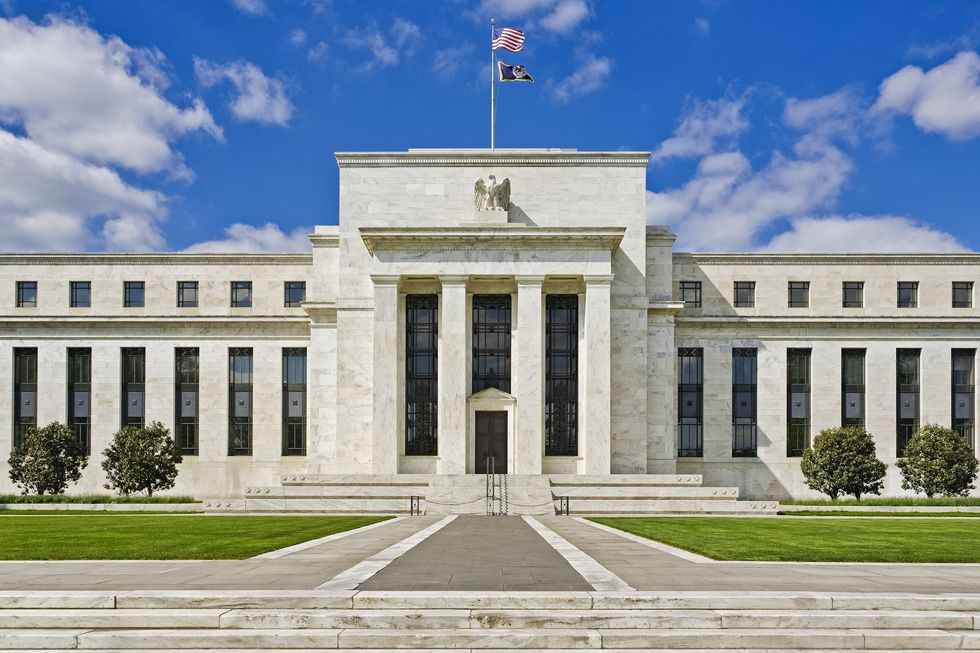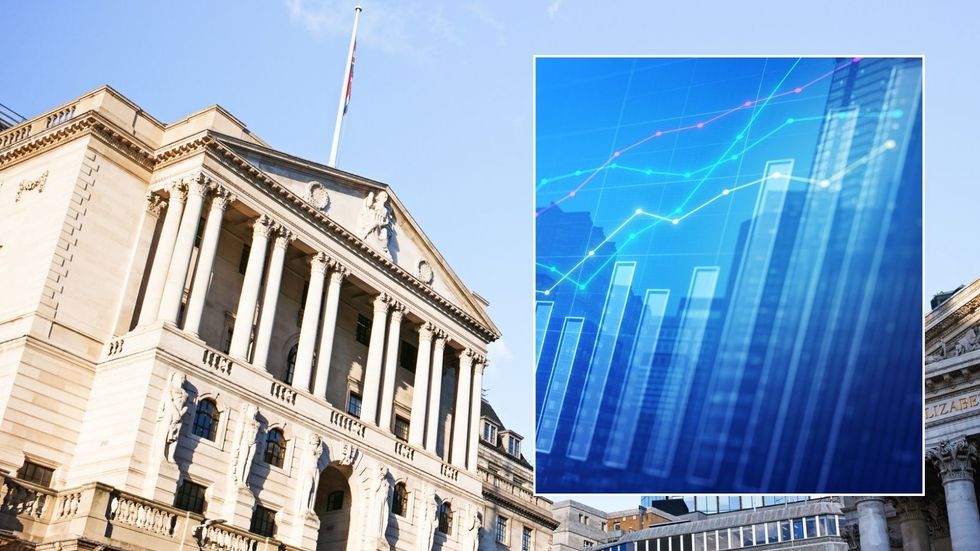Bank of England interest rate cut 'welcome' but Britons likely to face 'long time consequences'

The Bank has slashed rates but experts are questioning whether people will benefit in the short-term
|GETTY

Interest rates have pushed mortgage repayments up significantly with experts warning the latest cut is unlikely to impact peoples' finances immediately
Don't Miss
Most Read
Britons will be dealing with the "consequences" of high interest rates for "a long time" despite last week's cut from the Bank of England.
The central bank slashed the UK's base from 5.25 per cent to five per cent in a win for mortgage holders and households saddled with debt.
In recent years, homeowners and other borrowers have been saddled with hiked repayments as a result of the Bank's decision to raise rates to a 16-year-high.
Last week, members of the Monetary Policy Committee (MPC) narrowly voted to slash interest rates to offer much needed relief.
Rates across the world have skyrocketed as central banks have attempted to ease inflation resulting from the Covid-19 pandemic.
Since May, the consumer price index (CPI) rate has fallen and remained at two per cent which was the Bank of England's desired target.
Do you have a money story you’d like to share? Get in touch by emailing money@gbnews.uk.

The US Federal Reserve has failed to cut rates unlike the Bank of England
| GETTYDespite this, the MPC held off taking action despite inflation easing to the target of two per cent.
Even with the promise of more rate cuts in the future, experts are sounding the alarm that the impact of the Bank's actions will be felt for a long time.
Lydia Pried, the head of economics at NEF, outlined what Britons need to be aware of despite interest rates coming down.
She explained: "It’s very welcome that the Bank has cut interest rates today — but they should never have been so high for so long, and the consequences will remain with us for a long time.
“High interest rates have driven people into mortgage arrears, and made it more expensive for our government and businesses to make vital investments, including in things like fighting the climate crisis.
"And they aren’t responsible for cutting inflation, which was determined by international factors outside the Bank’s control.
“The cost of living is still sky high and energy bills are due to go up in a few months.
"To boost the economy and protect our quality of life, the Bank should keep interest rates down and take inspiration from Japan and China by introducing a special lower interest rate for vital carbon-busting investments."
Other central banks, including the European Central Bank (ECB) and the Bank of Canada, have brought rates down earlier this year.
Notably, the US' Federal Reserve has held off implementing an interest rate cut which has spooked investors.
LATEST DEVELOPMENTS:

The central bank previously raised interest rates to a 16-year-high
| GETTYThis morning, he FTSE 100 experienced its fall drop in more than a year in the backdrop of growing fears of a recession in the US.
Japan's Nikkei 225 saw it's biggest ever points loss overnight as it closed down 12.4 per cent.
Following this, European shares suffered their worst drop in two-and-a-half years with investors selling off their riskiest assets.
Earlier today, the FTSE 100 dropped by two per cent upon opening which is its lowest level in four months.










